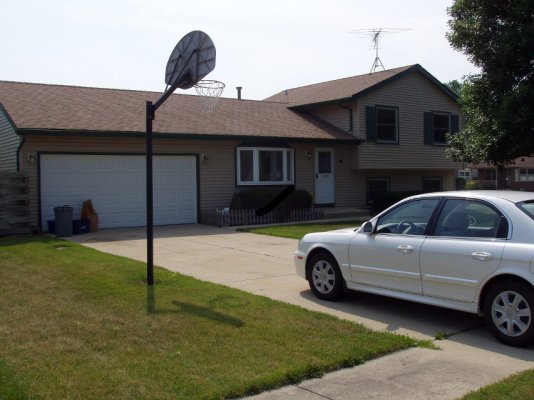Sunset
Give me a museum and I'll fill it. (Picasso) Give me a forum ...
So I switched over to a new insurance company All-state and about a month after the date, they updated my insurance to say the replacement cost of my house went up for an extra $188.
My old ins company said it was 1,000 sq ft (as does zillow and I think the property tax statement). Now it is 1,574 sq ft.
I phoned the agent, he got back to me saying when they measured my house that's the value they got. I was told they would measure and they did make me fix a deck railing that was missing.
It's a split level, meaning you walk into the living-room via the front door.
From the living-room you can go up about 8 steps to the upper floor, or down the stairs to the semi-buried family room (under the upper floor).
From the semi-buried family room you can go down another 7 steps to the basement (its under the living room).
It has a double attached garage on the side of the house, no house behind the garage.
Is insurance supposed to count the unfinished basement as living space?
What about the semi-buried family room. It has no doors to the outside, but the windows are above the ground level.
My old ins company said it was 1,000 sq ft (as does zillow and I think the property tax statement). Now it is 1,574 sq ft.
I phoned the agent, he got back to me saying when they measured my house that's the value they got. I was told they would measure and they did make me fix a deck railing that was missing.
It's a split level, meaning you walk into the living-room via the front door.
From the living-room you can go up about 8 steps to the upper floor, or down the stairs to the semi-buried family room (under the upper floor).
From the semi-buried family room you can go down another 7 steps to the basement (its under the living room).
It has a double attached garage on the side of the house, no house behind the garage.
Is insurance supposed to count the unfinished basement as living space?
What about the semi-buried family room. It has no doors to the outside, but the windows are above the ground level.


 ... it's obvious that one needs to consider the number of floors in addition to the footprint... at least obvious to most.
... it's obvious that one needs to consider the number of floors in addition to the footprint... at least obvious to most.